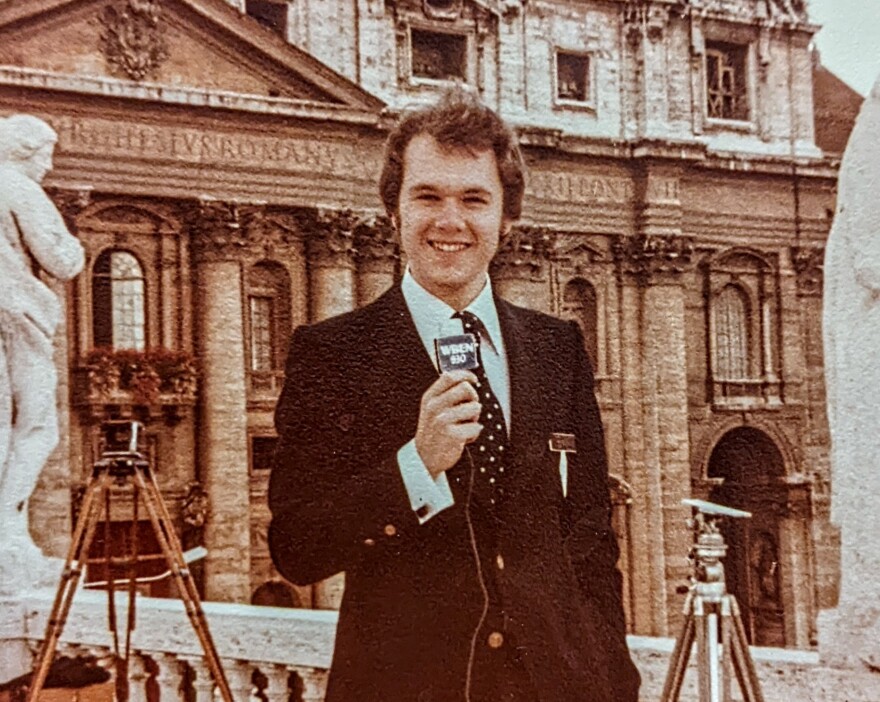When I mentioned offhandedly to my colleagues at WRTI that this is my 50th year on the air, they were doubtful that could possibly be true for someone of my youthful appearance. “Prove it," they challenged. This two-part “scrapbook” is the proof.
Half a century is a long time to sit behind a microphone. In those 50 years, I’ve had the privilege to talk with many unseen friends and bring them beautiful music, news of the day, and even share a laugh or two. It’s been a long journey and I thought I’d share some of the highlights along the way which have led to you inviting me into your home every afternoon on WRTI.
Professionally, I’ve been on the air since 1972, but my enthusiasm for radio started when I was a freshman at Irondequoit High School in Rochester, New York in 1968. The school had the first high school FM radio station in the US, and I was there after classes every afternoon as chief announcer. When I was a senior, I was hired by country Western station WNYR as a disc jockey, and since I was actually getting paid (minimum wage), I never looked back.

Buffalo was my home for most of the 1970s as a news anchor and in spite of the winters, (I was on the air covering the 100-inch snowfall of the Blizzard of 1977), it was a wonderful opportunity.
Buffalo has a heavily Polish Catholic community, so WBEN Radio sent me to cover the installation of Pope John Paul II at the Vatican, where I met him at a private audience the next day. As the youngest reporter there, I learned a lot very quickly about covering a major news story.

My radio work attracted the notice of the news director of WIVB-TV Channel 4, and I was asked to be the weekend television weatherman, filling in during the week when needed. This was the time before weathermen had to be meteorologists in front of a green screen. Having learned to fly private planes came in handy as I had already learned a thing or two about Buffalo’s quirky weather.

Turning my sights farther south, I joined the RKO Radio Network in New York City as a news anchor. It was an upstart operation, staffed by very talented, creative young broadcasters and the first network to broadcast via satellite. I was there from 1981 until it was sold in 1985.
One highlight of my time there was interviewing violinist Itzhak Perlman
Most of us went on to other networks after RKO was sold, but I took a little detour first. A several-month hiatus in Spain, the second of many, kept me busylearning more about the intricacies of the bullring and the pitfalls of the Castilian language. Hanging up my cape, it was back to New York to pick up where I left off.








